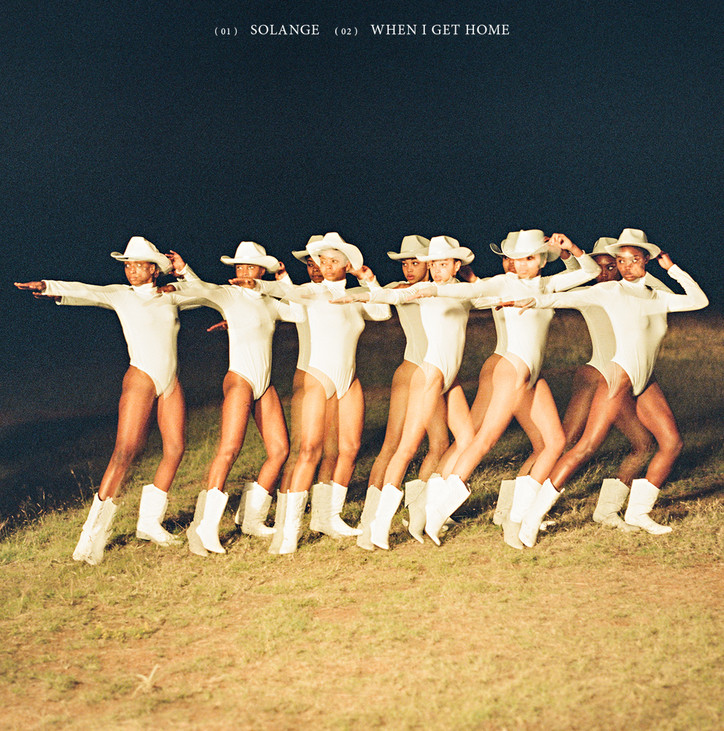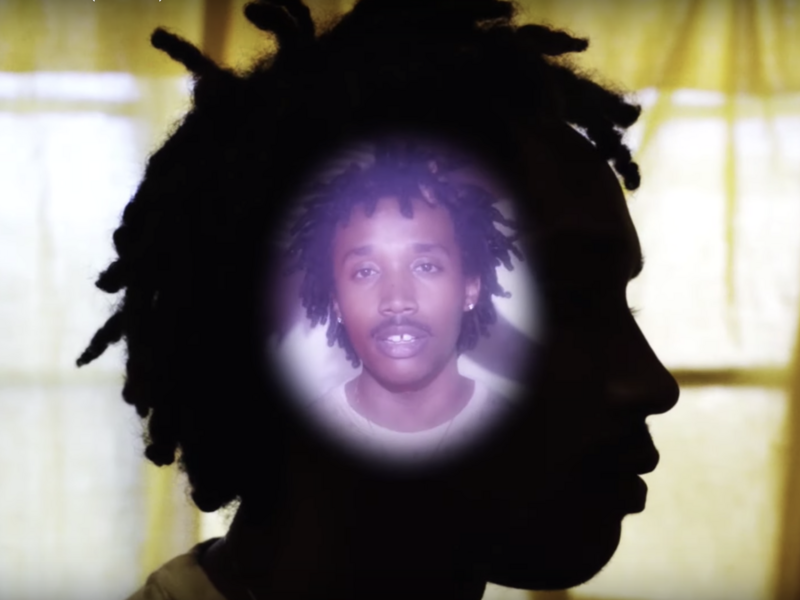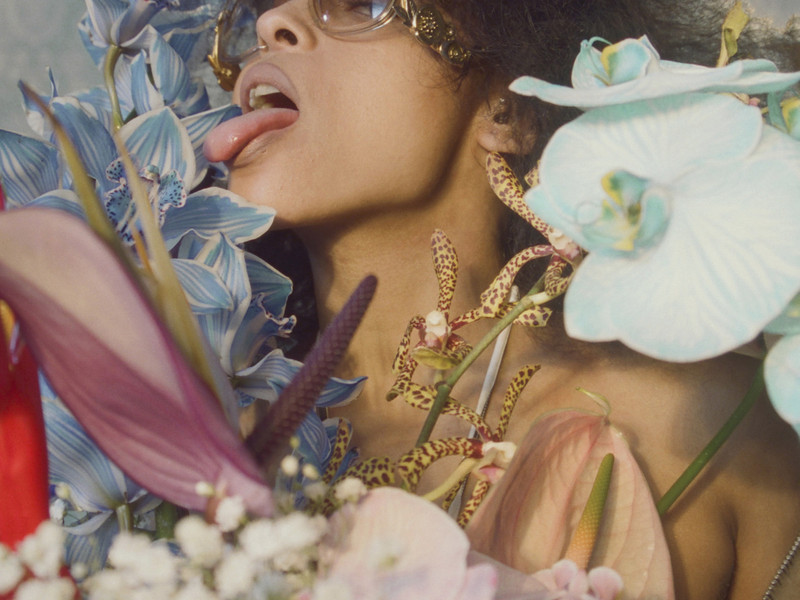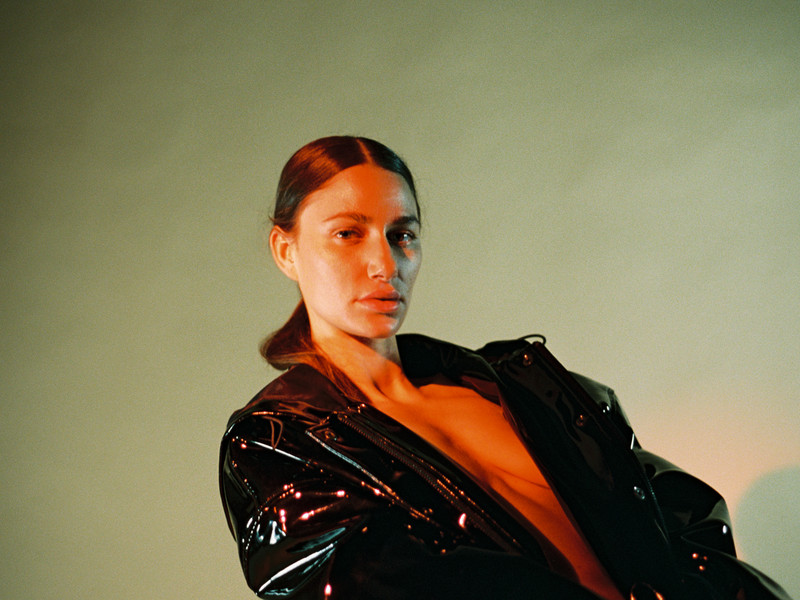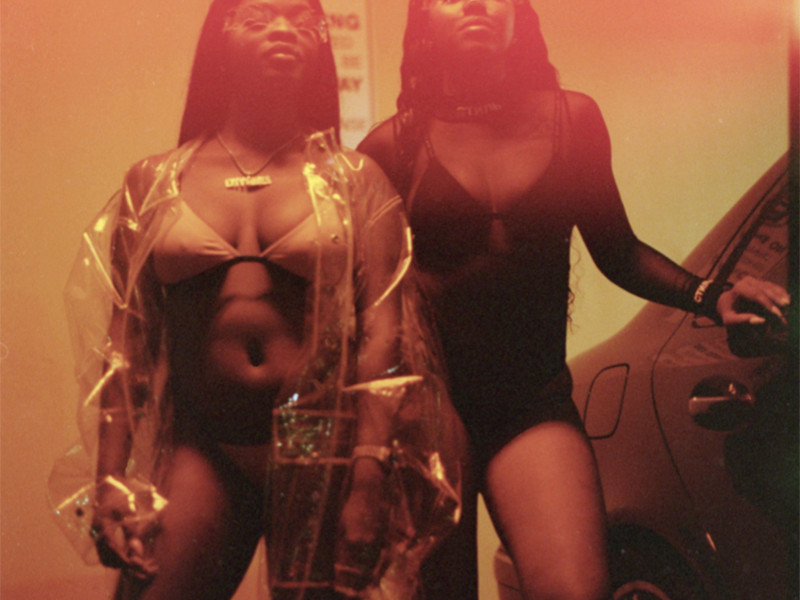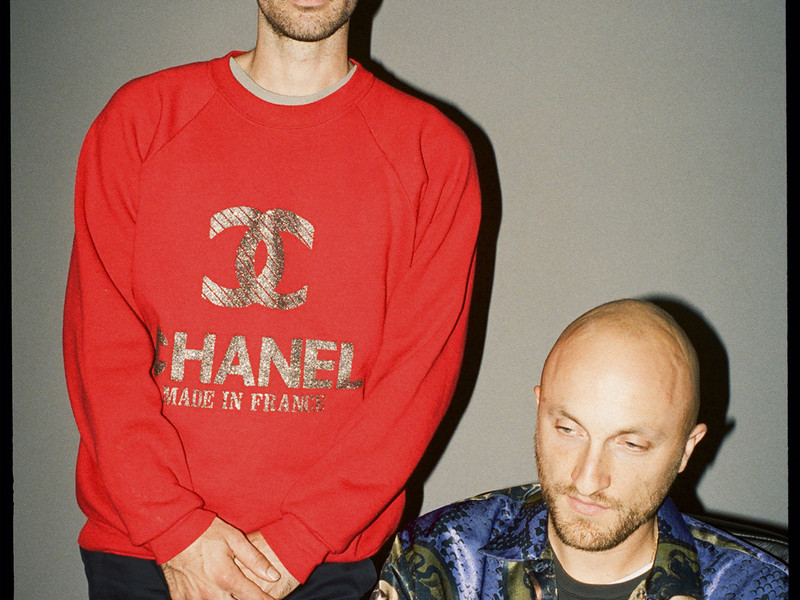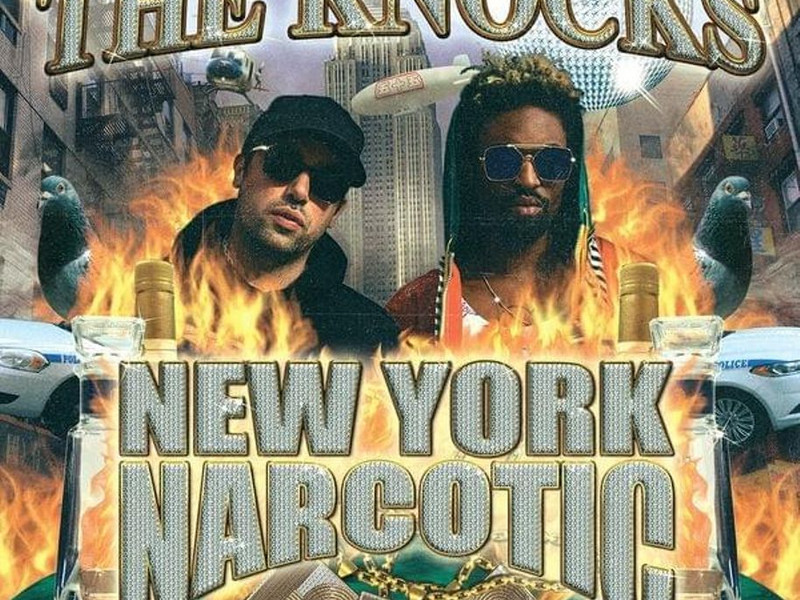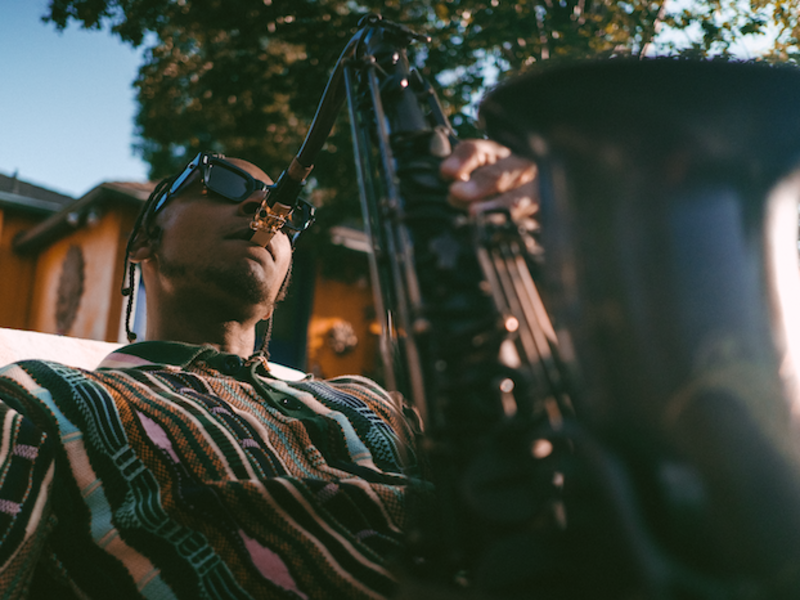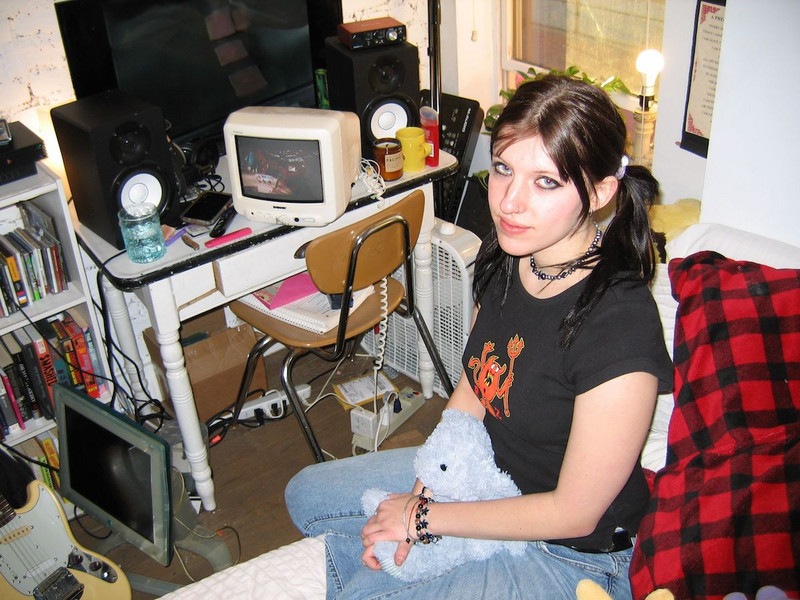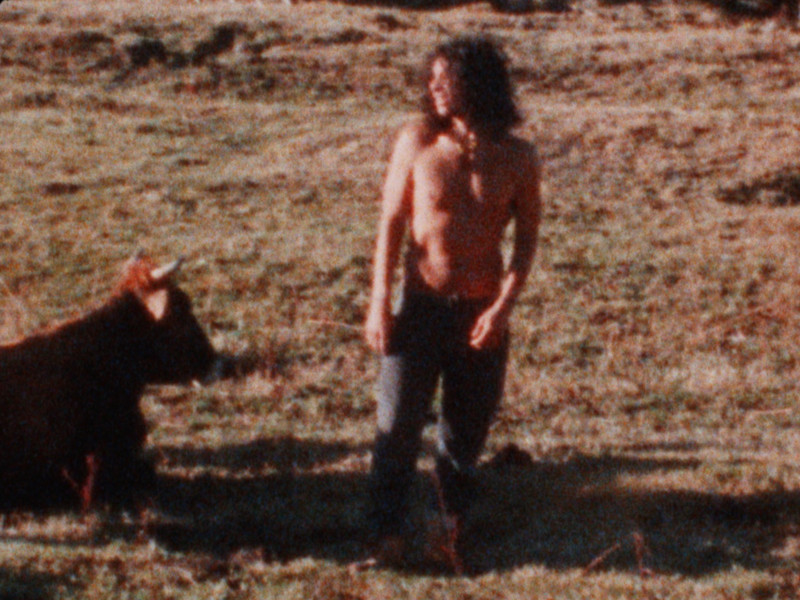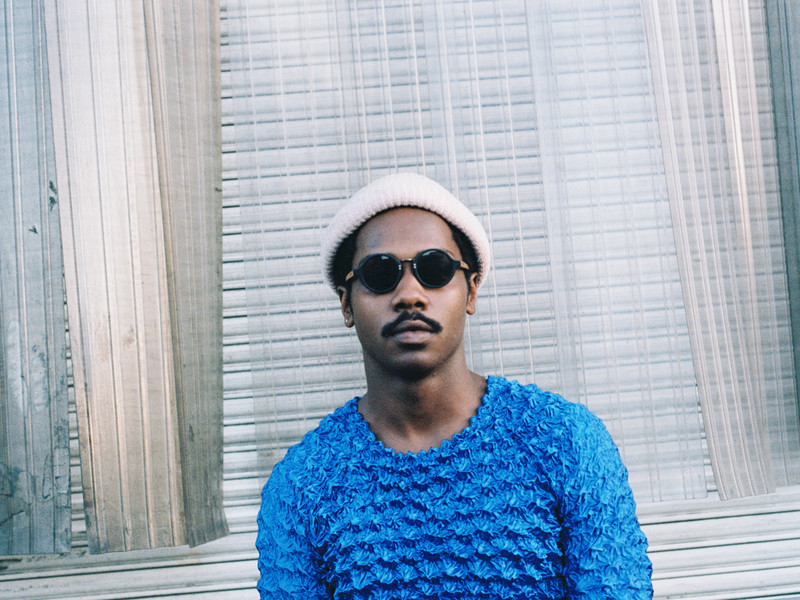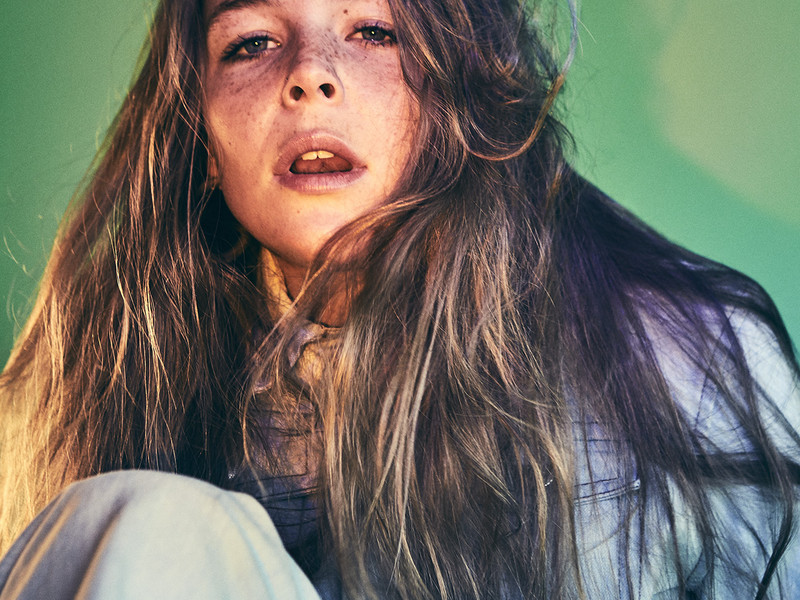Stay informed on our latest news!
Sign up for our newsletter
Lord Apex Is Ready for The Good Fight
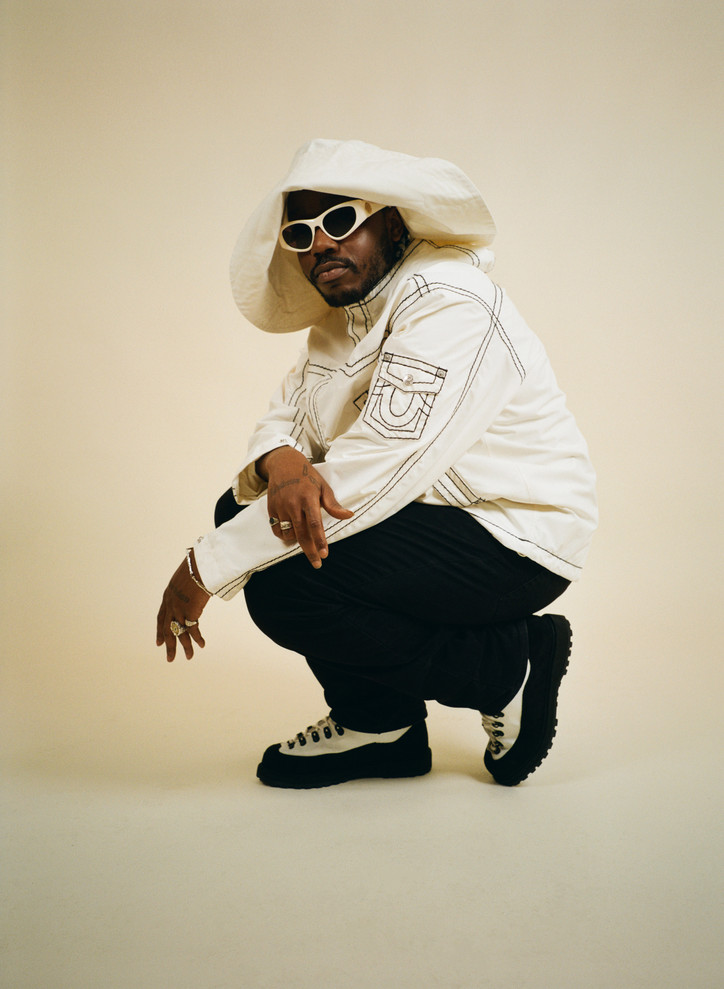
Jacket SUPREME, pants PRADA, boots DIEMME, hat ALESSANDRO STEFANO TONDONO.
With a creative eye and ambitions that expand past the musical spectrum, Lord Apex has been the face of campaigns with major brands such as Supreme, Carhartt, New Balance and Nike, and is even working on an exclusive collaboration with Champion for his forthcoming international tour. Having already recently performed China, Japan and Manchester, The Good Fight will see Apex on the road again in March, kickstarting his headline tour in Amsterdam and finishing in his home city of London.
What was your upbringing in West London like? Were you always around music growing up?
Yeah, there's a lot of music lovers and musicians in my family, so it's something I was always around for sure.
Did you play any instruments?
A little bit, but not as consistently as I wanted to. I played a little bit of steel pans and I played a little bit of African drums, but I could never really stick with no instruments. My mom just knew I was into music, so she would try to get me to start different shit, but it came when it was ready.
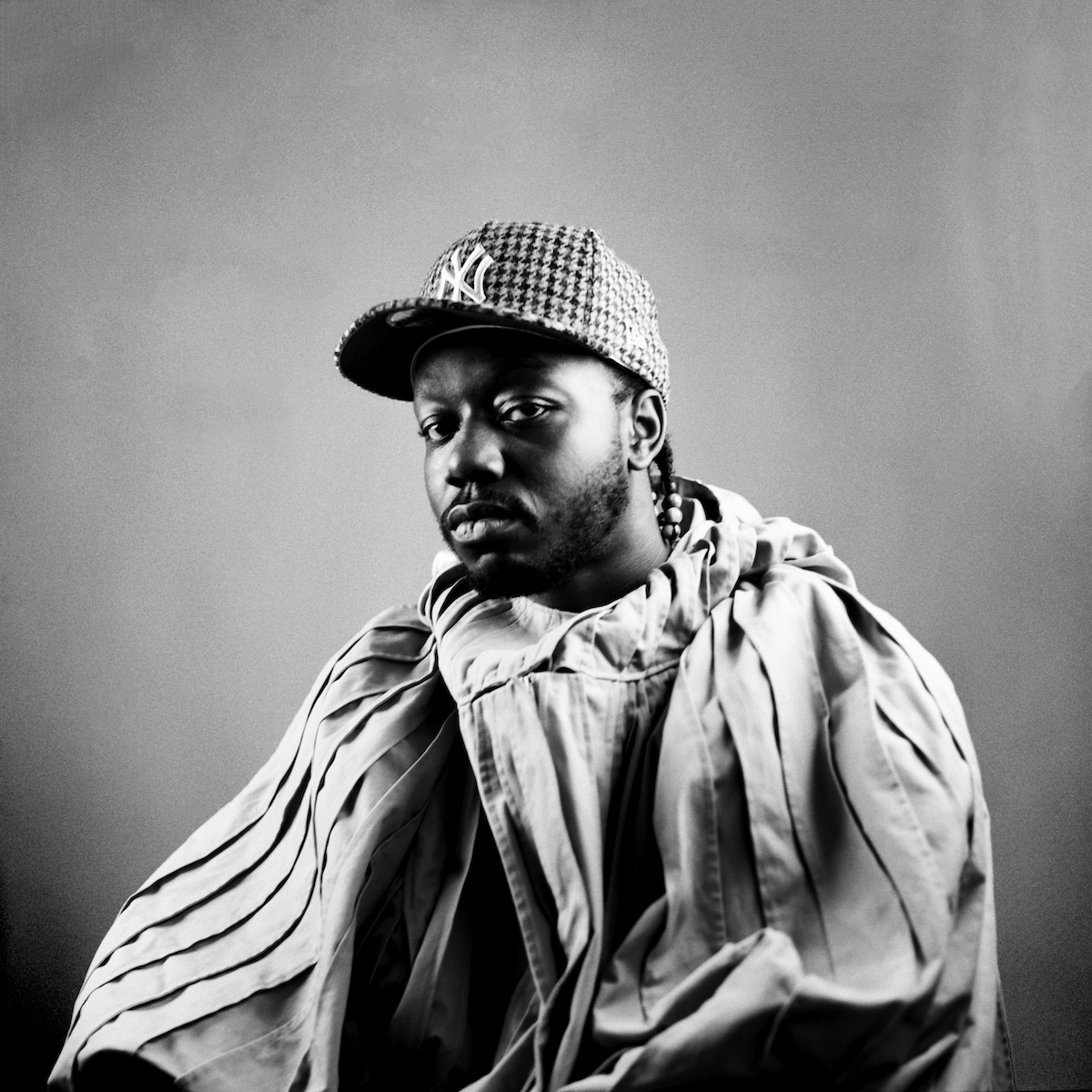
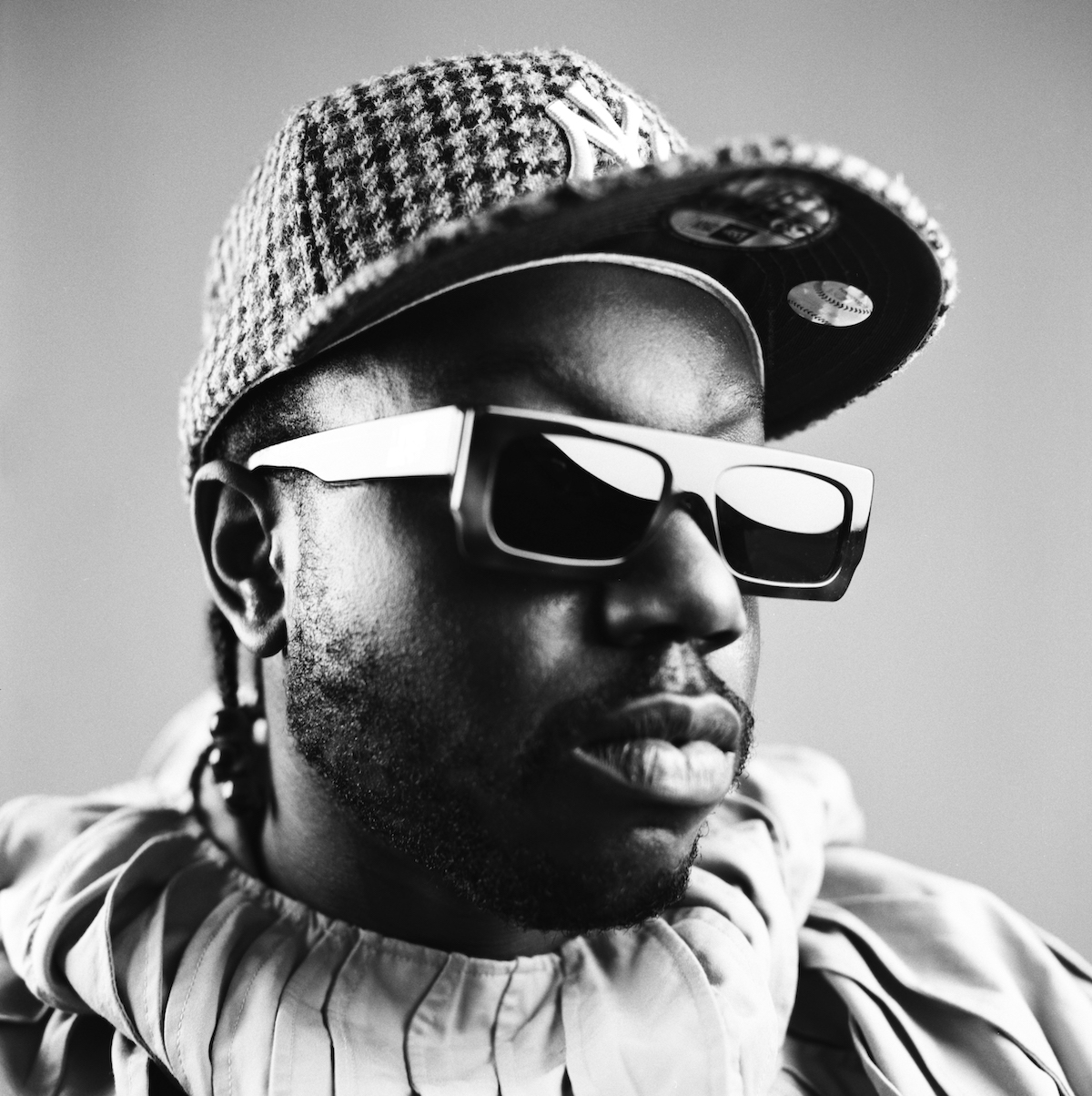
Jacket ALESSANDRO STEFANO TONDONO, hat NEW ERA, sunglasses LFDY.
Who were your music influences growing up?
All the early ones like Vybz Kartel, even older than that, like Buju and Capleton. But then all the hip hop shit as well, like Busta, Pharrell, Timbaland, Missy Elliott, in that sort of pocket.
Was it a fairly even split between UK and US artists?
Nah, it was a fair split between reggae and hip-hop. I didn't really listen to no UK. I listened to D Double because my sister did. But I wasn't really listening to it, it wasn't for me. Respectfully.
It feels like now the gap between UK and US music is being bridged. Is that something you welcome and want to see happen or is there a part of you that kind of likes that separation?
It's only separation if you allow yourself to be separated. So by calling yourself “UK rap”, just because you're from the UK, you're almost closing so many other doors for yourself. You know what I'm saying? So I'm good. I'm a world wide rapper. I would never consider myself ‘a UK rapper’. I wouldn't consider US hip-hop, ‘US hip-hop’. It's just hip-hop because it started over there. Rap is rap. When people start putting the borders on it, they start closing doors for themselves. So I don't really do that, and I felt like that's allowed me to get to where I'm at. I think of it all as one genre. We just come from different places in the world.
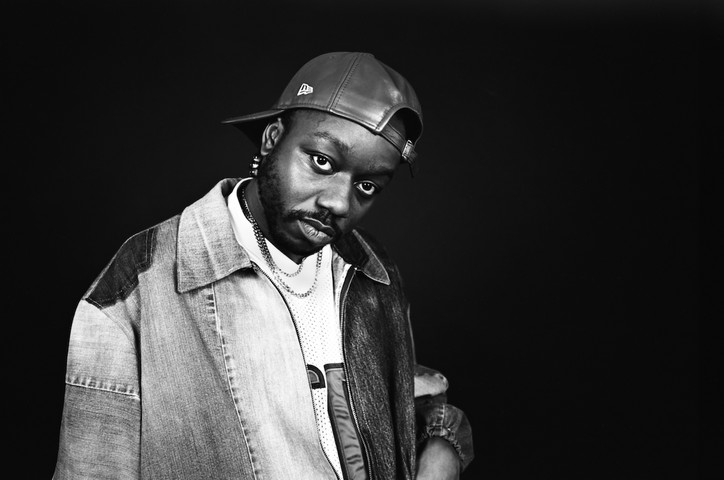
Jacket JOSHUA SAMUELS, hat NEW ERA.
Is it true your stage name was inspired by Madlib’s?
Yeah, yeah, yeah. So I remember coming across his alter ego, Quasimoto, and I think at the end of one of his songs, he just referred to himself as “Lord Quas” and I was like, ‘I like the ‘Lord’.’ I already had the ‘Apex’ by that point.
It must feel nice to now have him collaborating on your album.
Definitely a beautiful full circle moment. Yeah. Yeah, it's nice.
How did you connect with CJ Fly for ‘Belize’?
Oh, man. I grew up being a big fan of Pro Era. I owe them a lot of respect. So me and CJ Fly, we played a festival together in Renne, in France and we had a good vibe. CJ's another one that's grown up with Jamaican heritage so it is natural. It's natural for me. I'm very proud of where I'm from, so I would collab with every Jamaican artist if I could.
Yeah, Pro Era was a favorite for me growing up too.
But even outside of that though, growing up CJ was one of my favorite artists, so I was glad we got to make that happen. And we got a couple more in the stash.
I was looking at the lyrics for ‘Vintage Garms’. Has fashion always been something that you've been into?
Yeah, man. From the Primark days, we used to get fly. Real life.
I think of it all as one genre. We just come from different places in the world.
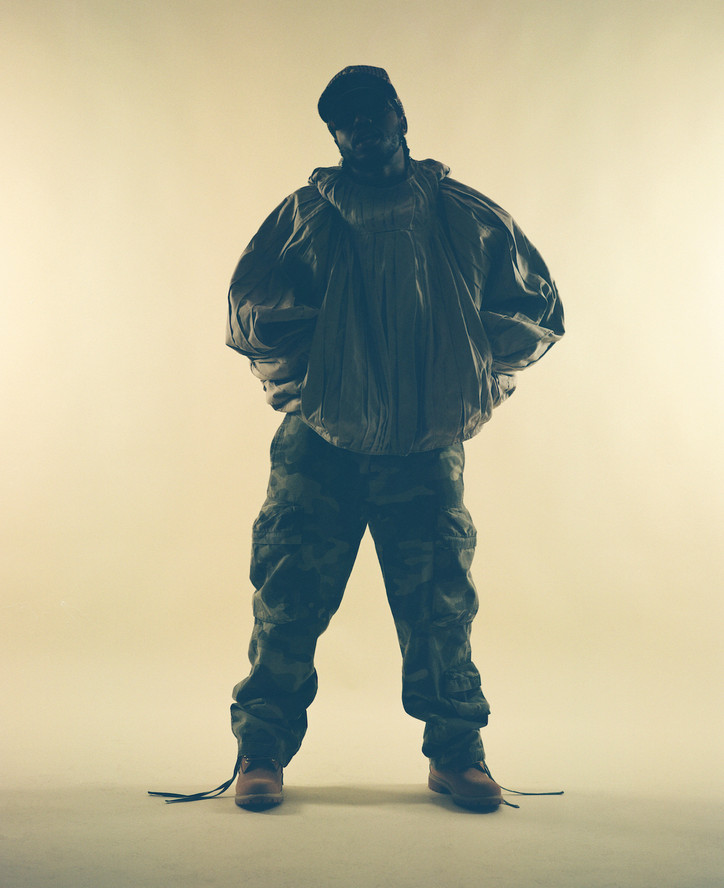
Jacket ALESSANDRO STEFANO TONDONO, pants and sunglasses LFDY, boots TIMBERLAND, hat NEW ERA.
I love the song ‘Muuma’.
Ah, yeah. I played it for my mom. She loves it. She was like, “I don't want to be biased, but it might be the best one.” I was like, ‘you right mom.’
No, it's my favorite too, to be honest. Has your mother always been a big influence on you?
For sure. I wouldn't be here. Everything; mentally, physically, all of them. All the ‘-allys’.
And in terms of your music career too?
Yeah, she gave me the freedom, you know what I'm saying? When I wanted to take a gap year off to expand my music, she was like, “all right.” So here we are.
That's nice she gave you that trust. How do you find it navigating the music industry and maintaining your creative control?
Man, I maintain creative control by just being like, ‘I'm not doing this over here and I'm going to do this over here.’ I'm a bit cheeky, innit. I feel like the industry's trying to maintain me. It's the other way around. I'm not even trying to maintain the industry because I'm going to just keep moving and flowing like water and doing what I got to do. The industry is always going to be the industry, but the industry is not set up for you to be successful. So if I was to follow the trends of the industry, I probably would not end up successful. I’d probably be a couple hundred thousands in debt because I'm trying to follow something.
Whereas if I created my own industry, you’re going to follow what I'm doing. So that's what I’m on. I'm going to create my own industry, my own empire, my own infrastructure and then you ain't got to worry about that. And then generational wealth and all of them things there, they just flow in naturally as they should.
Is there ever pressure from external influences to create hits or more commercial music?
Nah, I record what I want to, man. And one thing that's kind of dangerous about me is if you tell me to do something and I'm not here for it, you are almost going to push me to do the complete opposite just to be like ‘fuck you.’ If there ever was a point where people were like, “I want the old Apex”, I would just create a whole new one that they don't like, just to be like, ‘I'm not going to do what you like.’ And that goes for all parties involved in what I do. I'm always going to make what I make. I call on opinions but when it comes down to it, I make this shit. I've been making shit. It's not my first album, it's like the twentieth. You know what I'm saying? This is not my first walk in the park.
So outside of everything else, I take in creative and other opinions, but I do this and this is the one thing that I do that's very personal for me so I kind of don't want to even hear shit when it comes to making albums. I'm speaking on my life. So you may know me, but you're not in my head, so you're still not going to know why everything is chosen. Creative control, it can get sticky. I can turn into a real ignorant guy, just don't fuck with my creative process. But other than that, everyone knows it's love.

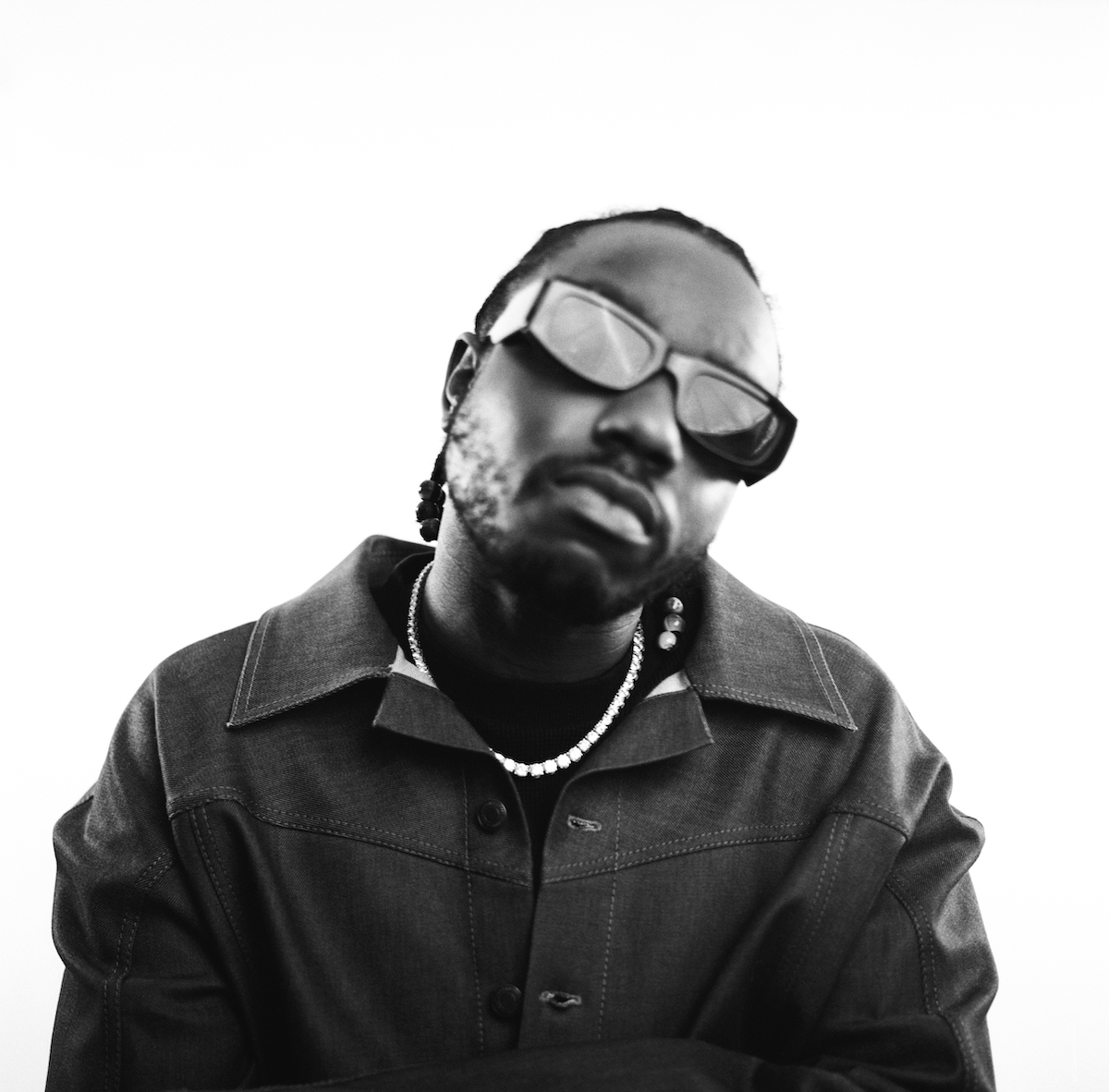
Jacket RENEE-SHANEL EDWARDS, sunglasses LFDY.
What do you feel like the next few years hold for you?
These braids are going to keep getting longer, the love's going to keep getting stronger. More art. Hopefully we expand off into the movie world, the film world. If not, buy some other scripts. Probably buy some short films that I'll do myself. That's been on my bucket list for a long time. More merch. I got the first batch in of the new shit. Hopefully we just keep the new shit going. Merch, but more officially on a clothing brand scale. But I kind of don't want to say clothing brand yet. It's a different pressure. The word ‘brand’ already is just wild. Hopefully some more collaborations with some cool brands that I grew up looking up to. And always new music. The offers keep coming in but I feel like when we hit 2025 I want to slow down touring a little bit and we’ll just have to double the number. And if you want me, you're just going to have to pay that. If you're not going to pay that, I'm alright because we've got money over here now.
I love being on the road, but I'm a stoner. I'm tired as hell. It drains me out. It's long as hell and I don't get to travel with no homies apart from my manager. And it's lit, I love it. But I just feel like this solo traveling man… The first year was lit. Second year was alright, the third year feels like work. And it is work, it's what I do, it’s a job. I love going to see the fans in different cities and doing what I do, but me as a human, me as an introvert and someone that's not used to being around a whole bunch of people, it’s like, ‘let's ease up.’ So I think at the end of 2024 we'll discuss some new numbers and if they ain't hitting the number, I'm in the crib. I've got my little nephew, I need to look after. I've got family I need to look after so I can go put my time into some other shit. Not to sound ignorant and shit I'm just very certain on what I want.
I think that's the opposite of ignorant.
Yeah bro, you got to know what you want because they'll step all over you, trust me.
Absolutely. And I think to be able to come back and know you've got your family right, it's the most important thing. What should people expect from the new album?
The Good Fight is the start of a new chapter, man. The next one's probably going to be Smoke Sessions 4, and that's going to be the last Smoke Sessions. We're going to close the little Smoke chapter on my life and we're just going to be on some more mature and different shit. I'm kind of tired of talking about smoke myself. I just do it so I talk about it. LLCs and fucking savings. That's what I'm thinking about moving forward. And love. Building family. All of them things.
Recommended articles
It Feels Good to Stop Hating Something
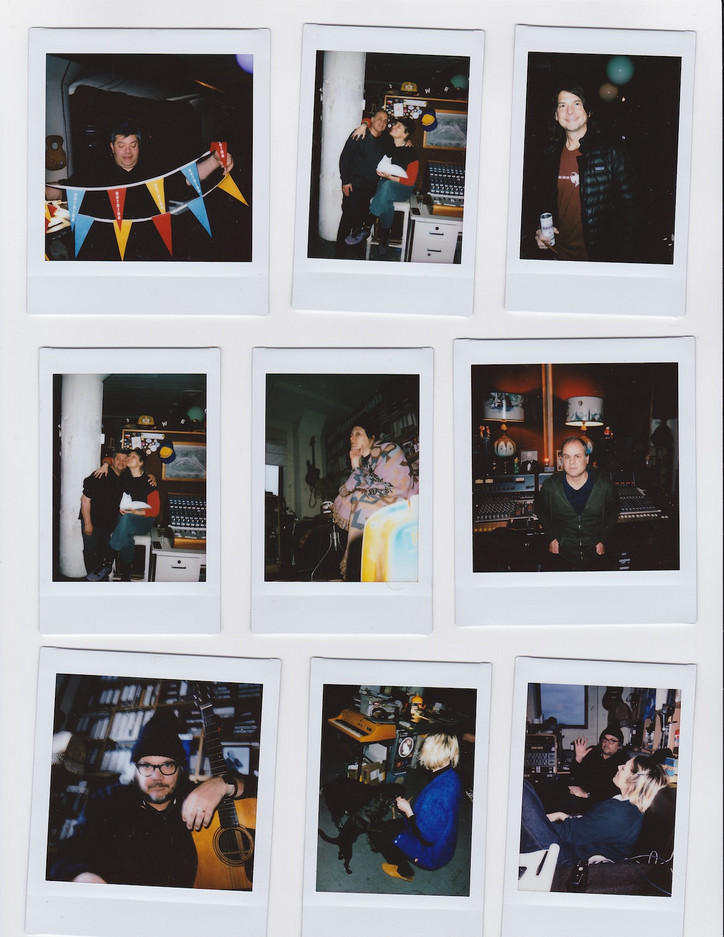
Morten Scholz— Hi Jeff. Nice meeting you.
Jeff Tweedy— Hi Morten. Likewise.
MS— Calling here from Copenhagen. I’ve seen you and Wilco perform here on several occasions, so I guess you know Copenhagen?
JT— Oh yes. Intimately. In the Uncle Tupelo days [Jeff’s first band active between 1987 and 1994] Copenhagen used to be our base for the European tours. We stayed in this freetown reminiscent of Christiania, and our rehearsal space was Loppen (a famous music venue in Christiania). We are looking forward to being back.
MS— Great. We’ll love having you. Let’s talk about your new book. This is your third book after an autobiography and a how to write a song DIY book—this book on the world’s 50 greatest by Jeff Tweedy. In the introduction you state that this probably should have been your first book and the one you were born to write. Could you please elaborate on that?
JT— When writing my first book and my second book I realized that probably my favorite thing to talk about in the whole world is other people’s songs. So in a lot of ways this should have gone first. Talking about other people’s music is a huge part of the way I make sense of the world.
MS— How did you set about writing the book? What came first — the list of songs or all the little stories from your life that flows through the pages?
JT— For a long time I have been writing down these little stories from my childhood and coming of age. I got to a point where there were quite a few of these and they made their way into the book as “rememorie” — little pieces of memories and remembering.
MS— Some of these memories tie very nicely into the given chapter on a specific song and others seem more loosely placed within the writing. How did that come about?
JT— It was a question of editorial sequencing. I’m not overly concerned with narrative, but much more interested in the sequencing of emotions. To me that is uniquely more alive than a clear narrative. I understand our need for a straight narrative, and I can appreciate it, but to me a series of emotions is way more lifelike and honest in regard to the actual lives we live.
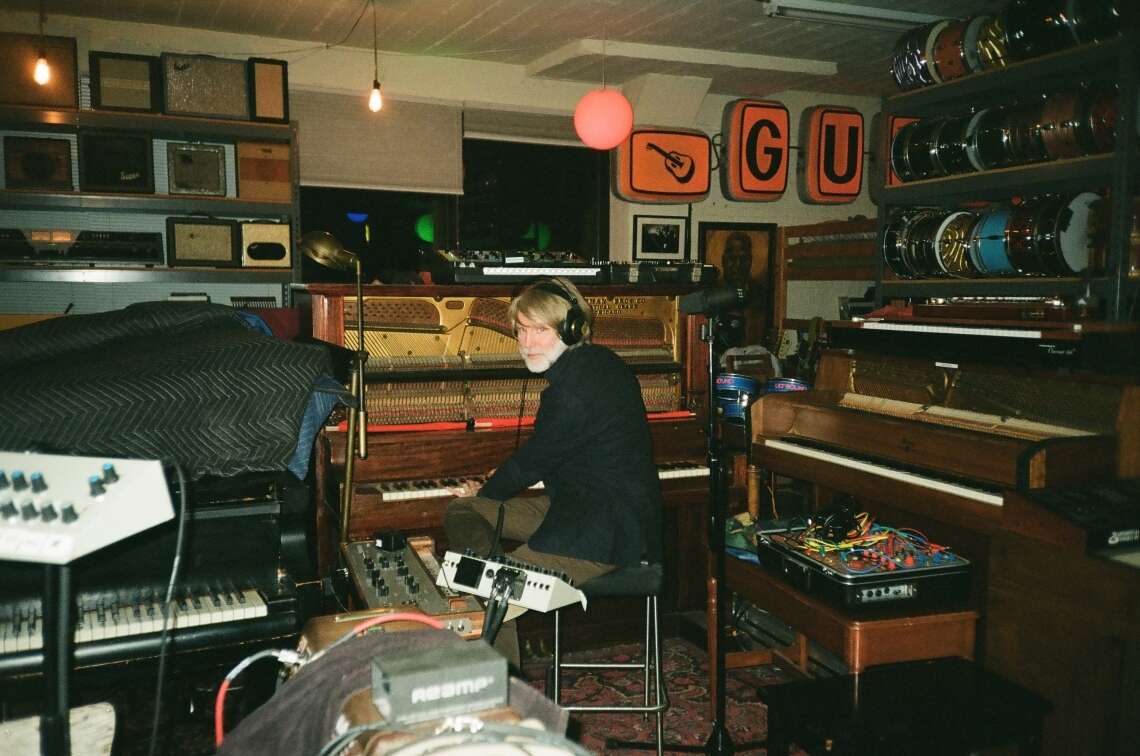
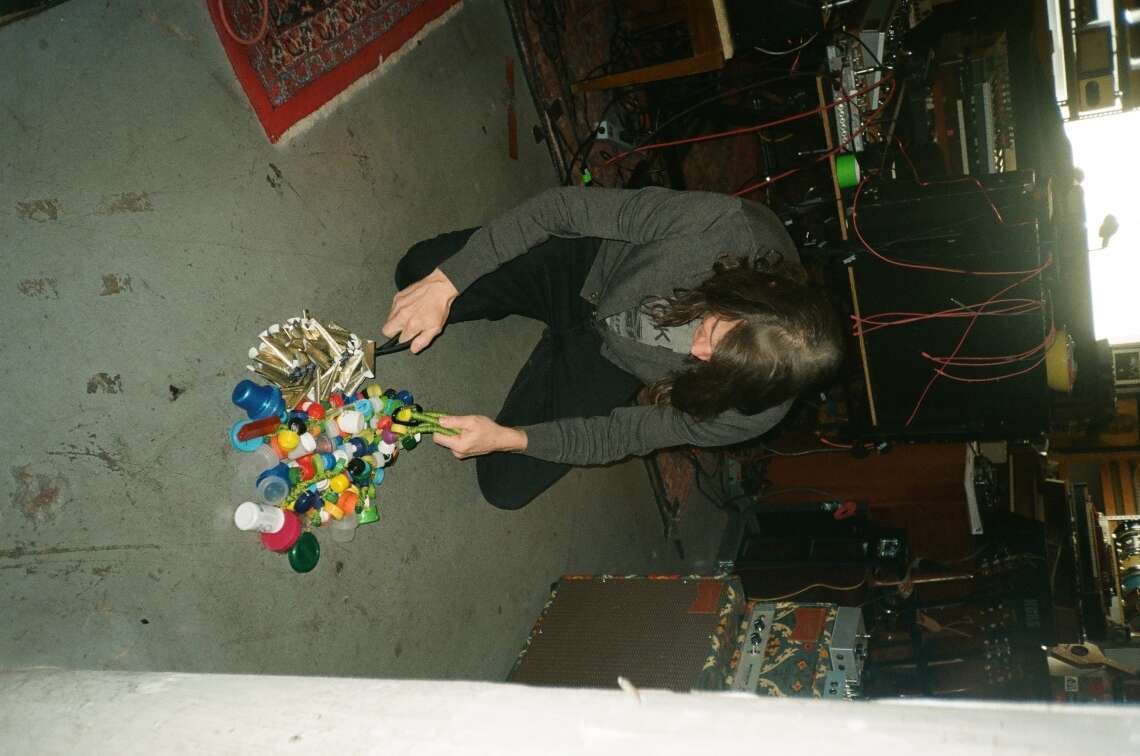
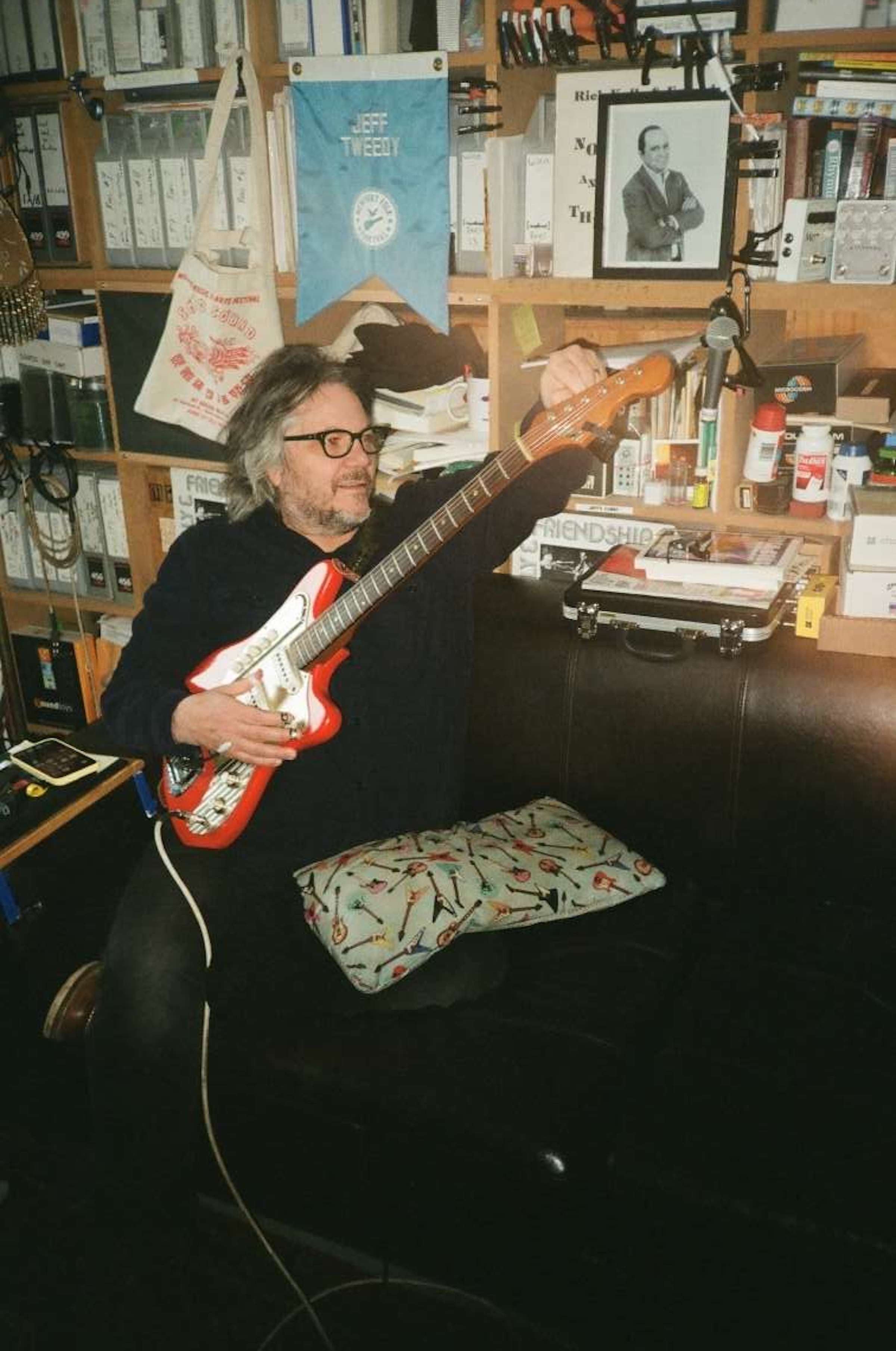
MS— Please tell a little about the process of picking your favorite songs. There are some usual suspects such as songs by Patti Smith, Bob Dylan, Rolling Stones and The Beatles, but there are also quite a lot of more exotic choices. To me it is quite a statement that the first song in the book — the opener — is “Smoke on the Water” by Deep Purple. That is not a subtle opener by the lead singer of esteemed and critically acclaimed county band Wilco.
JT— I understand what you are getting at here. Smoke on the Water is of course a massive hit, and not a particularly academic choice for a best first song out of 50. But for me it has been monumental, and I want to stand by that fact.
MS— Going into the book I expected a kind of best songs cannon, but that’s not really the case, is it? You are on another mission here?
JT— Sure. I accept those kinds of lists — an academic list of good taste versus bad taste, picking the best among the best. But it’s an intellectual exercise trying to weigh what is ultimately weightless. That’s not what I’m trying to do here. I’ve tried to circumvent my intelligence. This is ultimately my very personal list of the 50 songs that have shaped me into the person I am today. Some of these songs qualify for a cannon, and others only make sense to me, because I happened to hear them at that exact time and place in my life.
MS— So it’s less 50 great songs, and more The Story of Jeff Through the Songs That Shaped Him?
JT— Ha. You could say that. But it is both. Because all the songs have had such a monumental impact on my life, and all the songs in the book are undeniably great songs.
MS— Were there always only these 50 songs or were there mora at one point and you edited it down to the final 50?
JT— There were a lot more. Once I did the first draft, I ended up with way more songs than I needed. From there it was a question of editing it down to 50. Scraping a song, but keeping a passage I liked, trying to find another suitable place for it to go. In that kind of way it was very much like song writing, stitching together the whole thing until you have a finished volume.
MS— And you even made room for a hate song or two.
JT— Right. Ha. I felt like we were getting to a point where the book could do with a little less fandom — a little less of me loving some other songwriter, it got to a point where it felt a little boring. And I took it out on Jon Bon Jovi. Here in the States, he is still massive, super huge. And it’s really not my thing. I felt it would be good for the overall balance with a little hate, a little mirth — and I’m positive that Bon Jovi’s self-esteem can handle the blow perfectly fine.
MS— And a love-hate — or maybe more correctly a used-to-hate-now-transformed-into-love song by ABBA.
JT— Sure. It’s a question of redeeming yourself or evolving, maybe also about getting more self-confident with age. I used to loath ABBA, because that is what serious musicians are supposed to do, but there is no denying the sheer power of an ABBA song. Now I love it, and every time some musician tells me they hate ABBA I reply that they should try writing an ABBA song. It’s really not easy – it’s a craft and it brings joy to the listener, and you have to honor that.
MS— In the book you write that “it feels good to stop hating something.”
JT— It surely does, right!
MS— When writing the book did you listen to the songs you picked as you wrote about them?
JT— As a general rule I didn’t. I have checked all quotations of lyrics out of respect for the song writers, but I tried not to listen to the songs before finishing the book, basing my writings on my memory. And even some false memories and proper misreading.
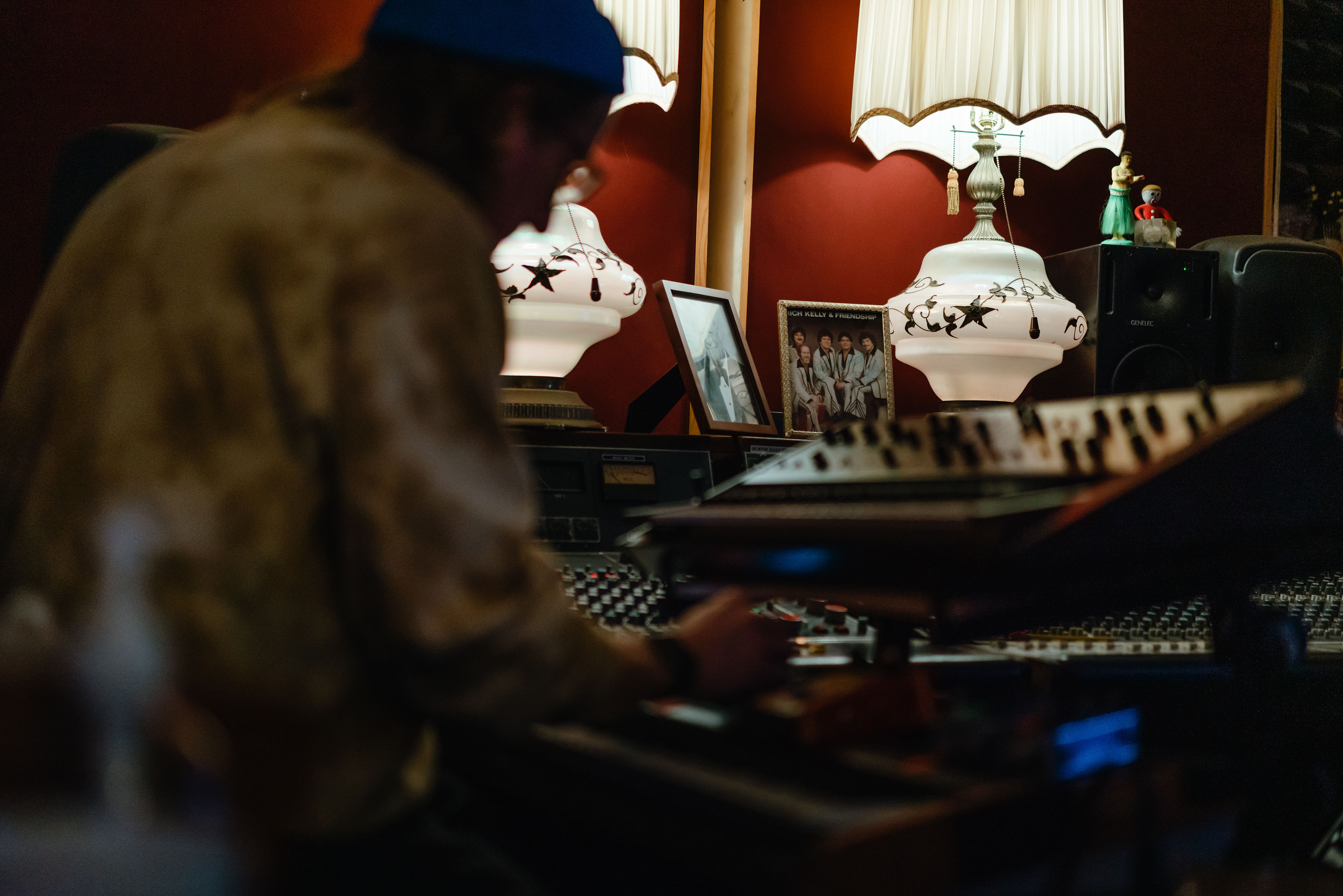
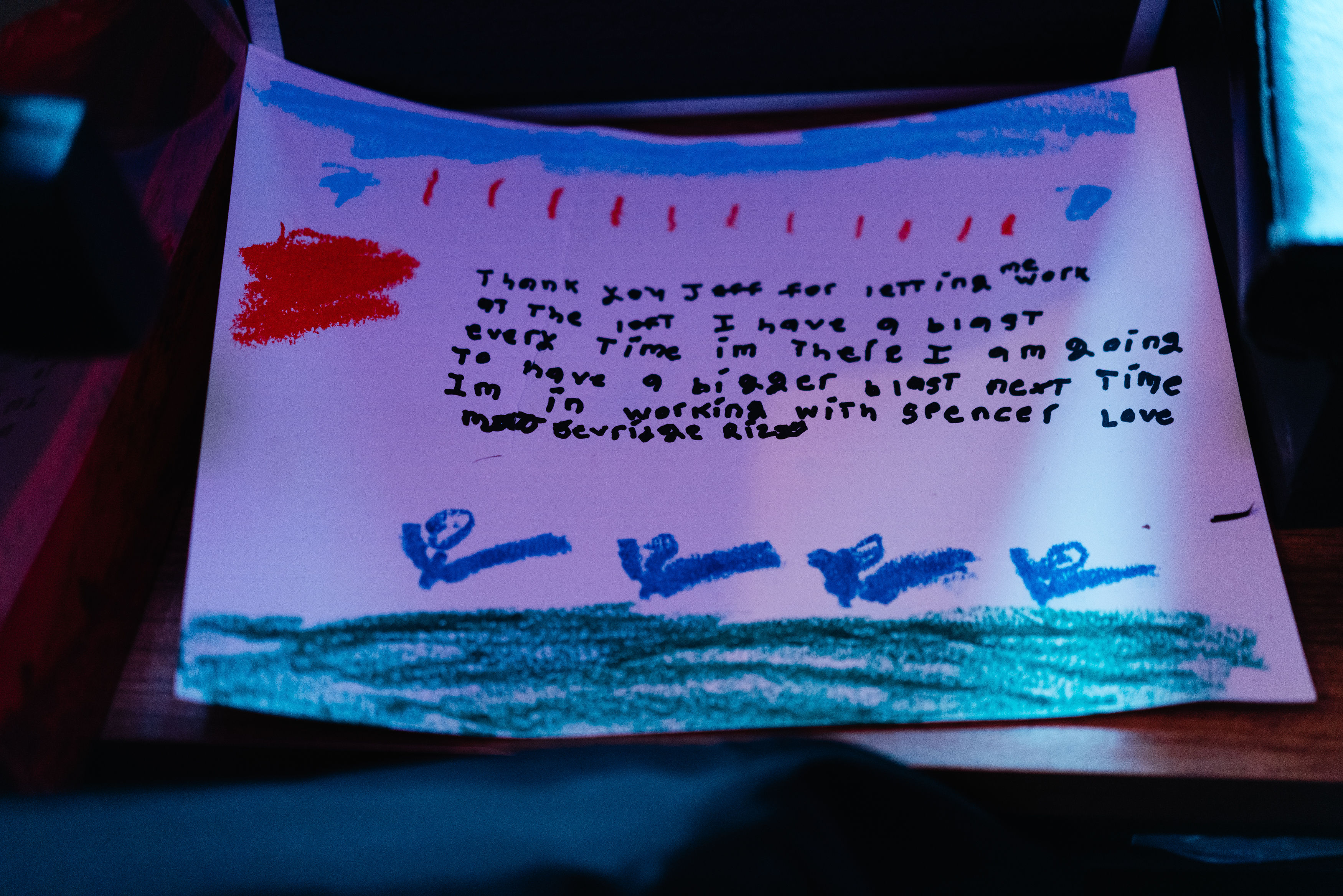
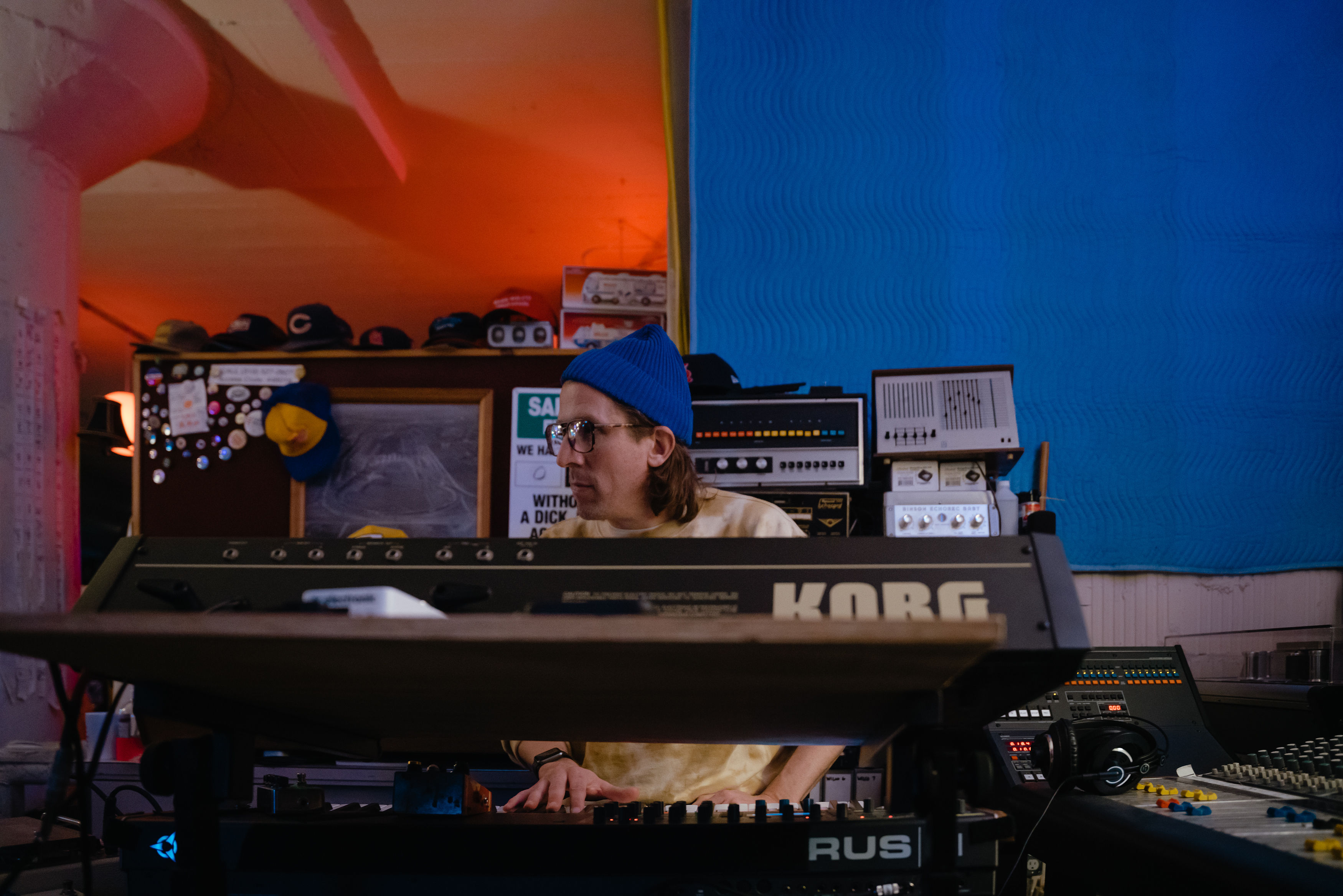
MS— Could you run through such a misreading for us?
JT— In the chapter about “Lucky Number” by Lene Lovich, my mom and I totally got it wrong. My mom — she was a brilliant woman but with a somewhat grim outlook on life — used to offer up this advice to me: “you are born alone, and you’ll die alone, so you might as well get used to being alone.” One day we saw Lene Lovich perform the track “Lucky Number” on a local TV music program. My mom instantly connected to hearing someone else singing “My lucky number is ONE”, and proclaimed it one of the best songs ever written, and in honesty maybe it isn’t. What we completely missed — and what I realized listening to the song after finishing the book — was that this little weird song eventually turns into a love song when Lena gets a new lucky number twice the size of one, namely two. So basically, it was a profound misreading of the song by me and my mother.
MS— But that’s how it is with memory, right? Sometimes you remember it wrong but it’s just as meaningful to you as a person.
JT— Yeah. And not only memory. Also interpretations. To me all interpretations are somehow “faulty” or wrong, because they get filtered through the observer and become their distinct interpretation. That’s the whole point, and therefore I’m kind of glad that the Lene Lovich misreading is in the final book.
MS— You have this sentence in the book that kind of leaped out of the pages when I read it. It’s a kind of definition of aspirational art. “It’s a few people of similar ages and mindsets – friends – allowing themselves to be vulnerable.” Is that the recipe for Wilco?
JT— it’s the recipe for any art centric band.
MS— OK. I guess we have a transition here. Let’s talk about the new Wilco album coming out. It’s called cousin. Why?
JT— It’s all about our place in the world, the feeling of belonging or not quite belongs. I'm a cousin to the world. I don’t feel like I’m a blood relation, but maybe I’m a cousin by marriage. It’s this feeling of being in it and out of it at the same time.
MS— And it was produced by the Welsh musician Cate Le Bon. How did that come about?
JT— We are longtime admirers of Cate’s work, and at one point we all met and improvised together at the Solid Sound Festival. It was a great experience, and we formed an immediate connection.
When time came and we had to get working on the new album, we made a very short list of people we wanted to work with as a producer. The list had one name. Cate’s. Luckily she accepted and we invited her to our Chicago Studio, The Loft, in 2022 where we began working on the album.
MS— Did Le Bon push you out of your normal comfort zone?
JT— She pushed us just the right amount. She insisted that we should take risks, repurpose our established strengths and challenge them to oppose habits, but at the same time staying true to whatever it is that makes Wilco Wilco.
A lot of the songs on our new album have been sitting around for quite some time - at least since we first met Cate in 2019. It was a Godsend to have someone with her sensibility to listen to it all with fresh ears and help rebuild and structure this record.
MS— Did Le Bon take the album in an — for Wilco — unexpected direction?
JT— I believe Cate took us in an icier and more nighttime-ish direction than anything we have done in Wilco before. The sound balances out nicely up against my own naturally warm singing voice and creates this kind of port-of-safety-quality that we haven’t really created on previous records.
MS— Is there a theme for the album?
JT— It's not a concept album per se, but all the songs are — I guess — all about human connectivity. Cate is very suspicious of sentiment, but she’s not suspicious of human connection. That’s what it’s all about. People connecting and disconnecting with other people.
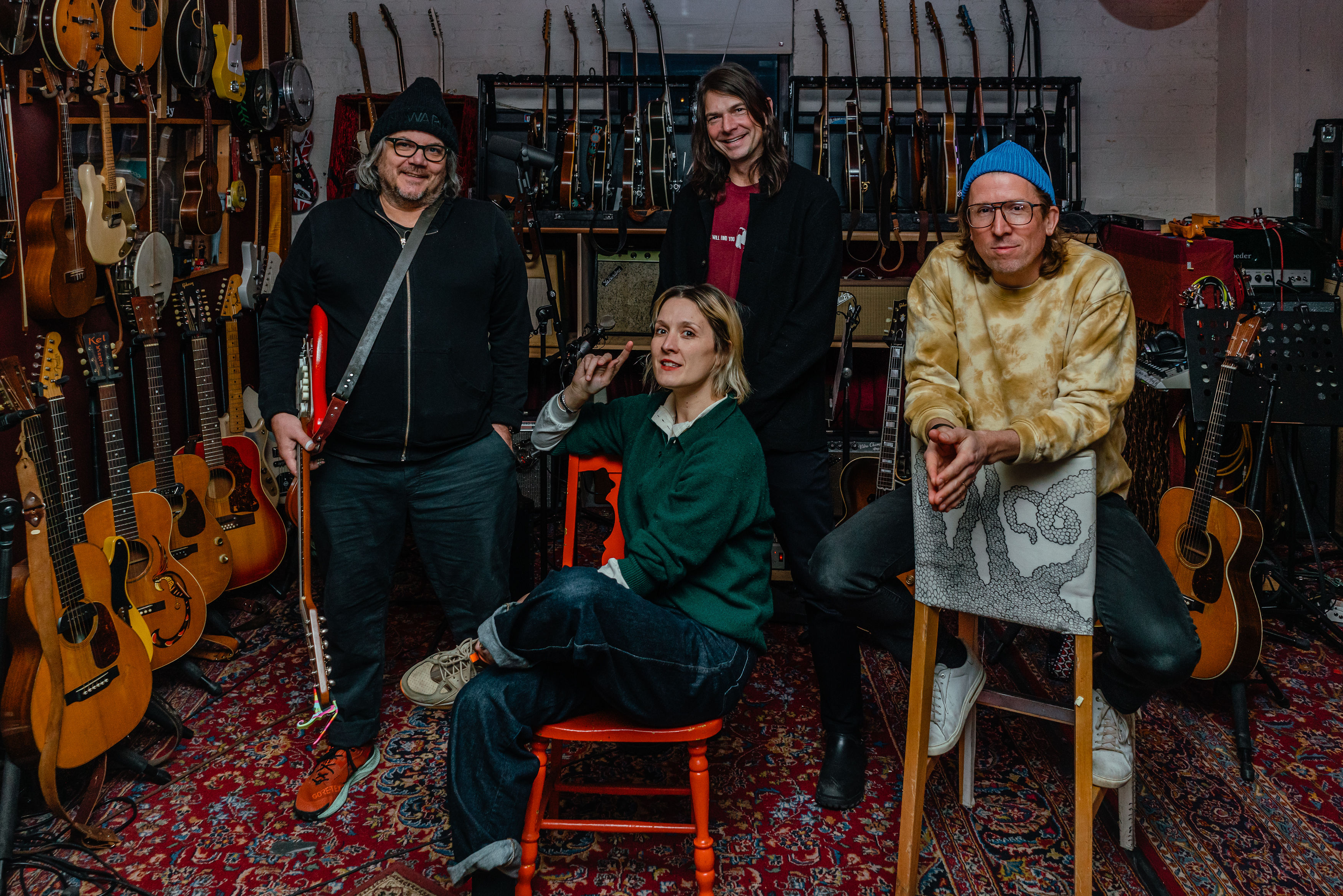

MS— Are we talking positive connections or negative connections?
JT— We are accustomed to going from dark to light — I guess that is a Wilco trademark — and some of the songs are pretty grim, but the album definitely ends on a lighter note. On the last track — the disco-ish “Meant to Be” - we’re not quite sure whether connection is restored, whether it ever could be enough, but we see the sustaining power of trying to get closer together.
MS— So are you kind of debating with your mom's viewpoint — that we are all born alone and die alone, and therefore just as well can get used to being alone?
JT— You could say that. I totally get the feeling of being all alone in the world, but I’d like to believe that the pain is more about trying to be connected to other people when we fall short so often. Somewhere deep down there lies the immutable truth that all of us are related.
MS— That’s a beautiful note to end on. One final question. Are you happy with the record?
JT— Have you listened to it?
MS— Sure.
JT— What do you think?
MS— I think it’s great!
JT— We kind of agree.
Recommended articles
What It Feels Like for a Girl Ultra
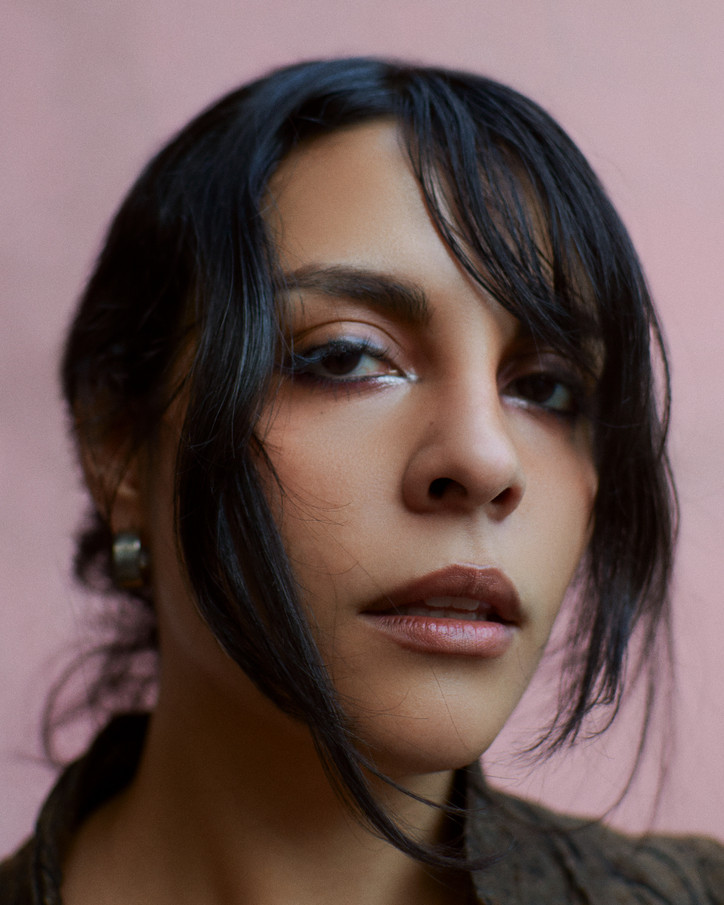
I was first introduced to Girl Ultra last year, when a friend sent me EL SUR. I found myself drawn to the album’s skillful eclecticism, evoking everything from LTJ Bukem to Liz Phair to Massive Attack. Despite its many variations, the album is united by Nan’s voice: a strong and synesthetic guide for an eclectic sound, soft but firm and crystal clear.
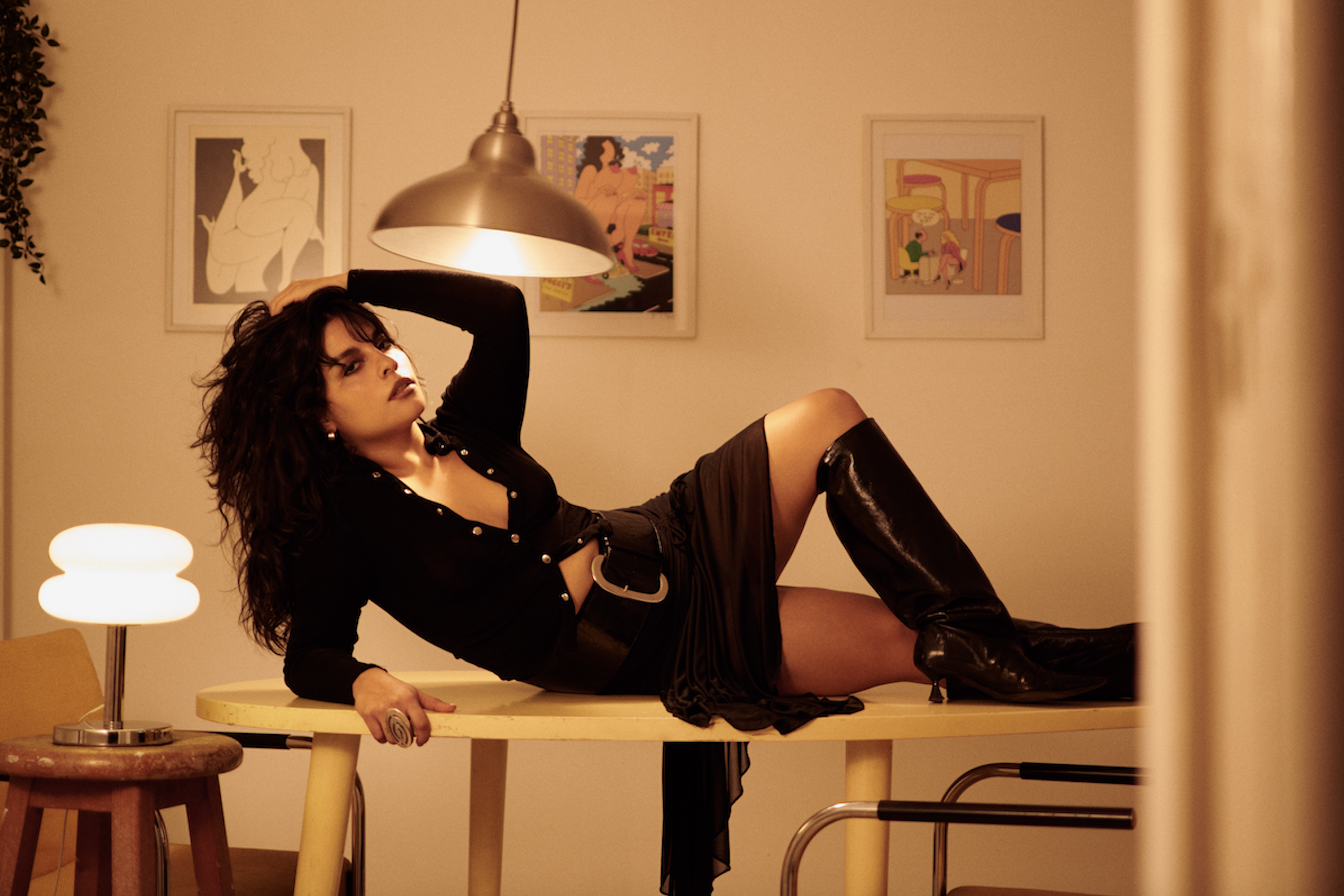
With her new single freshly out in the world and a hometown concert scheduled for this Saturday at Mexico City’s spacious Auditorio BB, I met with Nan at her home to hear more about how she’s feeling in this present moment — mentally, energetically, musically. Her apartment reflects the lush tones of her music: lots of ambient golden light, with personal treasures arranged throughout. “I just like things that make me feel happy and that remind me of somewhere or someone, so I have plenty of stuff that used to belong to my grandparents. I like to feel cozy.”
And cozy is a great word to describe her music: not in that it’s all overly tranquil, as her songs are often infused with deep feeling, but in that you feel very close to her both physically and emotionally when you listen to it. EL SUR in particular feels directly honest, with songs about sentiments refined to their purest form; “Nada q hacer” muses on ennui and dissatisfaction, while “Amores de droga” laments destructive love.
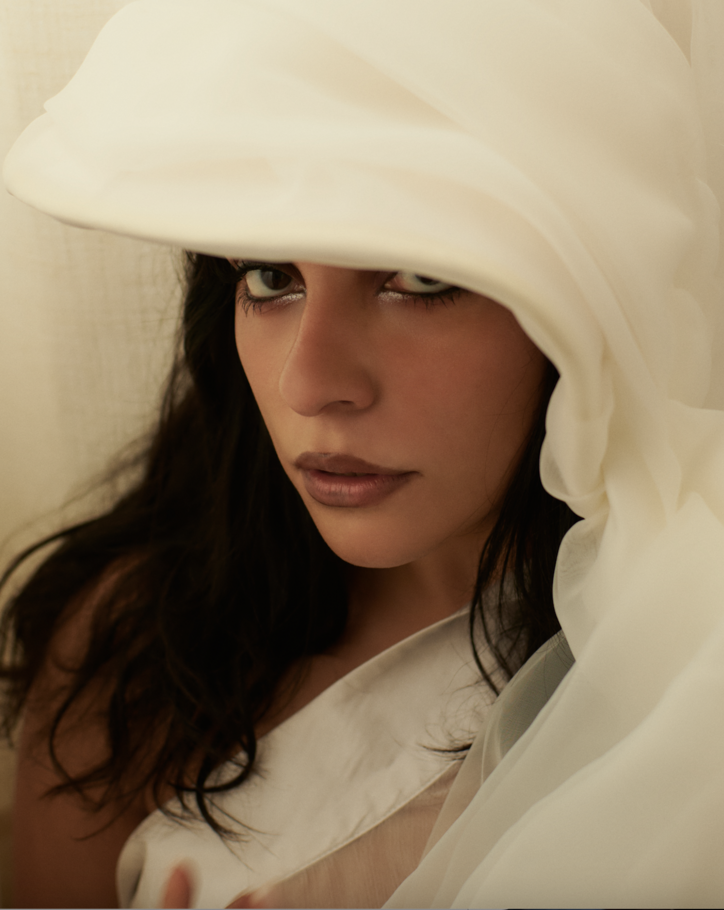
For Nan, songwriting is a way to connect with universality. “It's very personal and visceral and raw,” she explains. “But then people ask me, ‘Is this song about this person?’ And it’s like — no, it’s more of a collage of [experiences] where the feeling is the same. You find that rawness in different experiences. For example, saying goodbye. It's not just one person that you've ever said goodbye to. You've said goodbye to things in life, to versions of yourself too. So you just try to find that feeling in every verse, in every space in the song.”
As we shot her portrait in the living room of her apartment, I browsed her shelf of extensive CDs. Her favorite albums from the collection? Boards of Canada’s Music Has The Right To Children (“Very ambient, a lot of textures — an album that I can play at any time of the day”), Madonna’s Ray Of Light (we gushed about this to one another, as it’s been the soundtrack to my year), and Julieta Venegas's Bueninvento (“One of my favorite Julieta albums'').
It’s hard not to hear a range of 90s and 00s influences in the Girl Ultra catalog. “I feel the way that I communicate within music — when I make music — is through [what] I listened to, and the references [there] … Most of the music that inspires me comes from an electronic perspective, with a pop sense. I really like Everything But The Girl, Savage Garden, or even The Cardigans — stuff that used to [play] on the radio but [with] a more niche sense.”
Influences are an important part of Nan’s story. As someone who grew up in Mexico City, the energy of the metropolis is nearly inextricable from her upbringing as an artist. Stepping outside for more photos around her neighborhood, I found that the sights and sounds of her neighborhood echoed the layered sounds and punctuated rhythm of the music we were speaking about — a comforting anchor for her to return to after many days away on tour. “I like seeing the same people in the park here, in the morning, and the same lady that sells avocados outside the supermarket. I like to have these little reminders of what Mexico City is.”
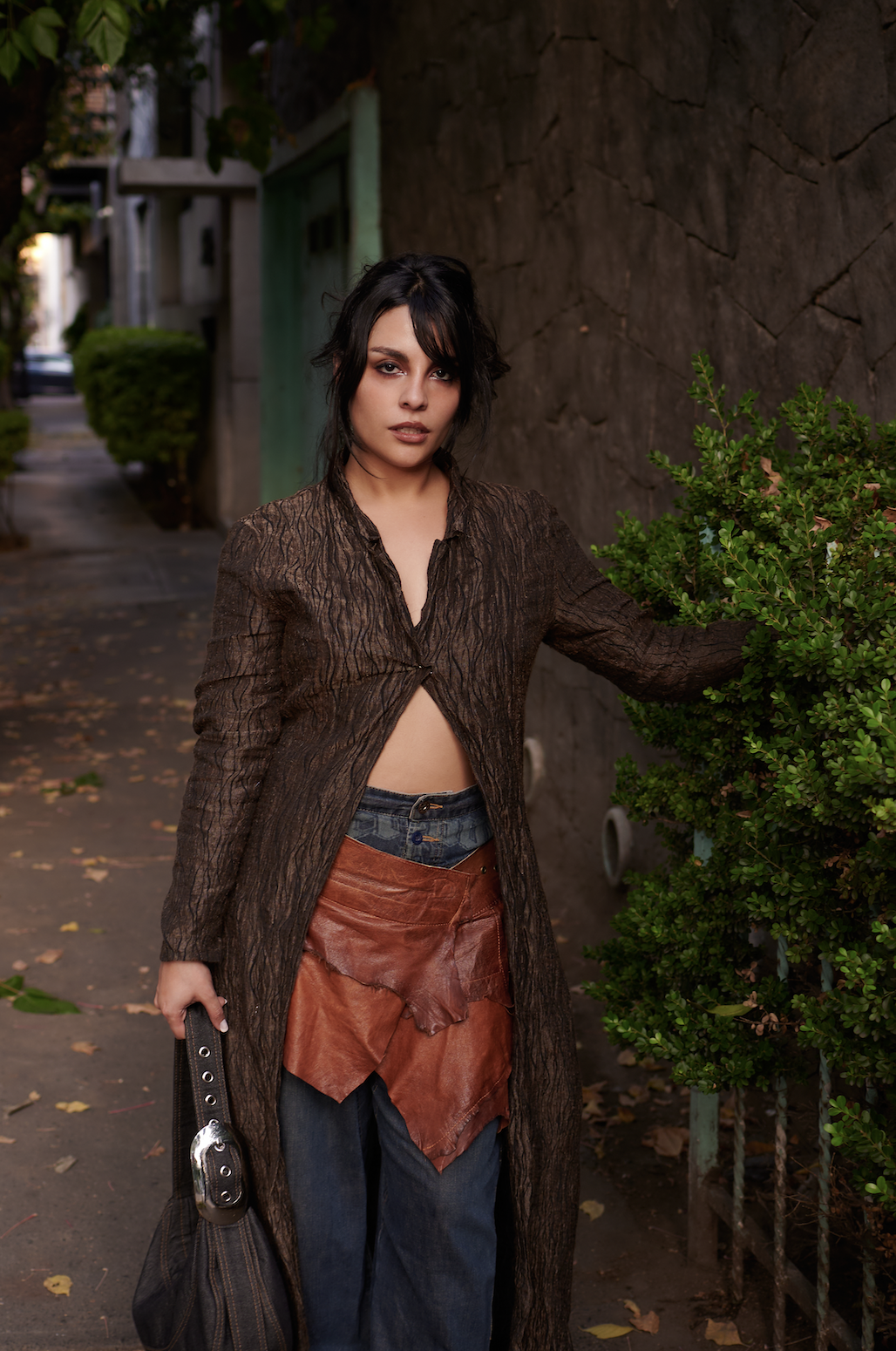
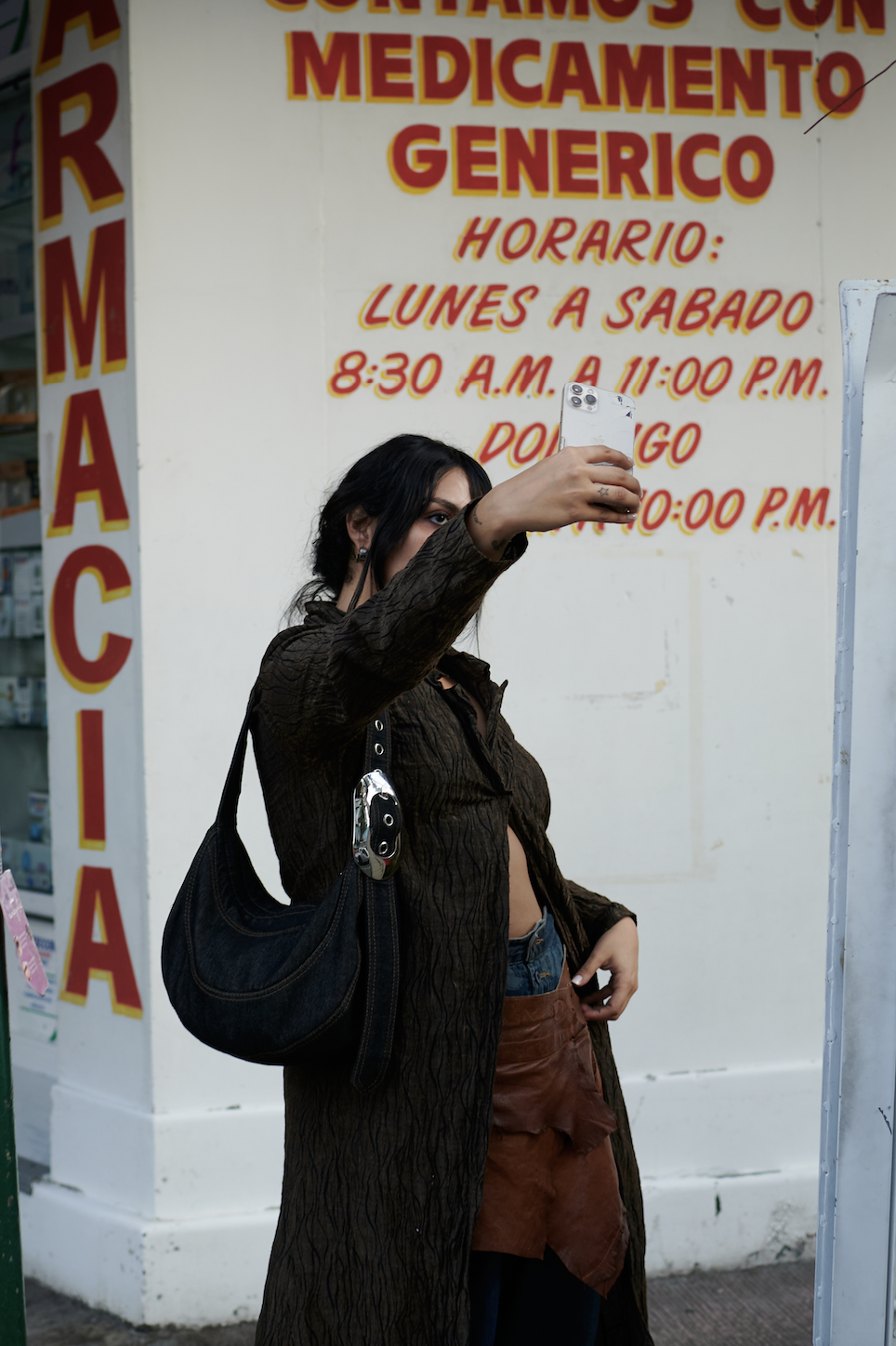
Mexico City has historically produced a range of musicians whose influence can be felt around the world, and Girl Ultra seems poised to join their ranks. Well-known among a North American audience (she opened for Alicia Keys’ Mexico tour dates and toured the US to much acclaim earlier this year), what is even more assuring of her stardom is the artist’s combination of stage presence and vocal dexterity. In her NPR Tiny Desk concert, she sings with conviction, hair whipped from side to side as plays alongside her band.
As a performer, I want to create moments to remember. Sometimes there are songs that allow you to play with them, with your body, with your facial expressions. I'm not a dancer, but I like to use my hands, my shoes as a tool. It’s just about finding your language and being a vessel.
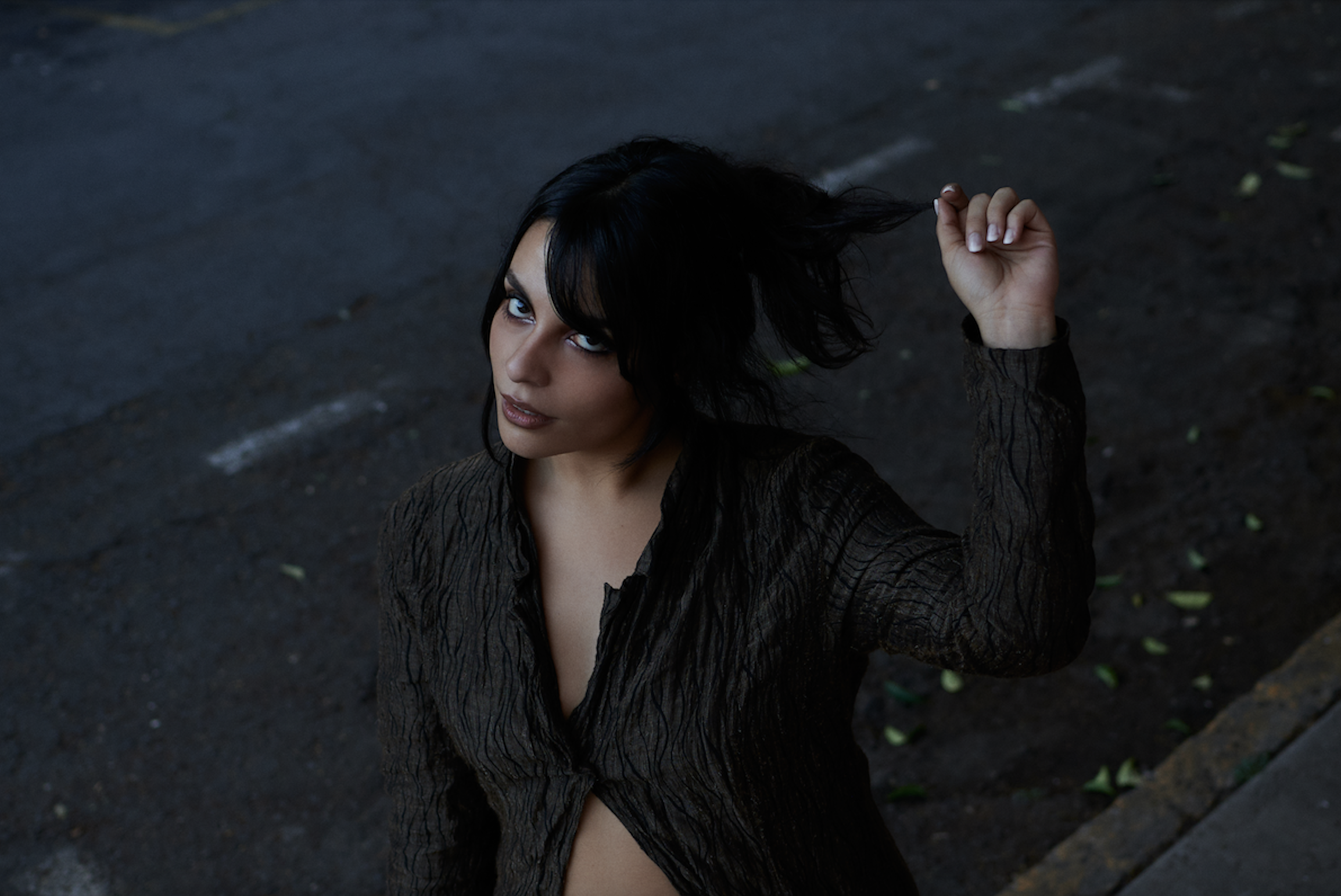
Looking toward the future, Friday’s hometown concert may be just the beginning of the next chapter, but it’s a meaningful one for the musician. A fitting end to a long tour and a tribute to the people and the place where it all started. “It's a very Scorpio season thing. A very friend-based show — I got the opportunity to make it bigger and make the band fuller,” Nan shared. “I always like to finish my tours [here]. I really enjoy being able to invite the people I grew up with [to the concert]. It's such a milestone, returning to your city.”
